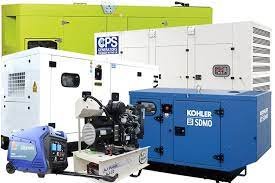Last Updated on August 17, 2023 by
The portable generator market is expected to reach $7.4 billion by 2026.
As power grids become less reliable and more people seek energy independence, generators have become widely used by homeowners across the United States.
Perhaps you’ve used a generator when you’ve gone camping but haven’t integrated one into your home yet. Knowing the different types of generators can help you find which works best for you, so you can be prepared no matter what happens.
Keep reading to get started.
Table of Contents
Portable Generators
Portable generators are smaller and compact, allowing you to store them and travel with them easily. They are usually fueled by gasoline, propane, or solar energy.
Because they are smaller, they can’t produce as much energy as larger generators. However, this also means they are more affordable.
Standby Generators
Standby generators are the complete opposite of portable generators. They are much more expensive and are a semi-permanent feature added to a home.
A standby generator is usually bigger than an air conditioning unit, and this size allows a large fuel tank and a commercial-grade engine with high fuel efficiency.
These generators can power an entire home during an emergency, so they are a great investment to make. Yet, they do require regular maintenance to ensure they are working properly for a blackout situation.
Gasoline Generators
Generators can use a lot of different types of fuels, and gasoline is a popular one. A gasoline generator is usually less expensive and more straightforward with its controls.
It does have high emission rates, and gasoline is generally more expensive to purchase than propane or natural gas. Gasoline generators are good options for those shopping on a budget or those who won’t use their generator frequently.

Diesel Generators
A standby generator is almost always a diesel generator, but others will use diesel too. Diesel generators are more fuel-efficient, so you will spend less money on fuel over the long term.
They also do the best in freezing temperatures and usually have a longer lifespan than gasoline generators. Yet, they do give off harmful emissions, which can be toxic to humans and the environment.
Solar Generators
Solar generators rely on their solar panels for energy, so you don’t spend any money on fuel.
However, if you were thinking of installing a generator that is solar and powered the whole home, it would be extremely costly.
You can find portable solar generators or smaller ones that are less expensive. The downside is that they don’t produce a lot of power, and they require you to plan ahead of time to ensure you can charge them while the sun is still up.
What Types of Generators Will Work for You?
There are many different types of generators out there, so make sure to browse around even more. The best generator for you is out there and waiting, so start shopping today.
For more home improvement articles, browse through our blog.
Apart from that, if you are interested to know about Diesel Fuel Grades and Their Use in Diesel Generators then visit our Technology category.













